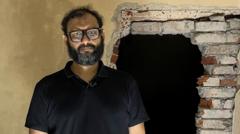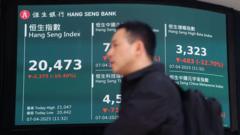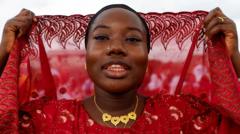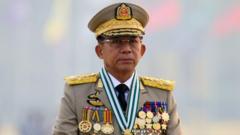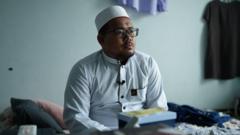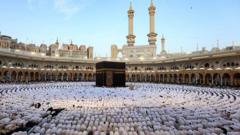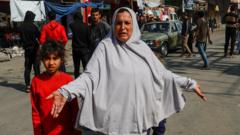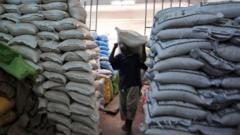As sunsets draw in, political rivalries are set aside in Bangladesh, where iftar parties reveal crucial alliances among aspiring leaders after the fall of an authoritarian regime.
**Iftar Parties in Dhaka: A Political Landscape Shaped Over Meals**

**Iftar Parties in Dhaka: A Political Landscape Shaped Over Meals**
During Ramadan, Dhaka's iftar gatherings reflect the shifting alliances of political parties navigating a new era.
The city of Dhaka, bustling with life, transforms significantly around sunset during Ramadan, the Islamic month of fasting. Streets that brim with activity become markedly quieter as the faithful gather to break their fast at evening, also known as iftar, within their communities. However, for political parties, these occasions serve as strategic platforms, allowing them to subtly communicate their intentions and maneuver within a rapidly evolving political landscape, especially following last summer's dramatic political upheaval.
This year's iftar parties drew heightened attention as attendees and their seating arrangements hinted at potential coalitions among competing factions. In this context, understanding the dynamics of who associates with whom has become crucial. For instance, the rooftop gathering held by Gono Odhikar Parishad, a party that emerged from a 2018 student-led movement, reflected the new political alignments post the ousting of former Prime Minister Sheikh Hasina.
Amidst the backdrop of changing leadership and political values, these iftar events showcase not only the social religious rituals of breaking fast but additionally offer a window into the future direction of Bangladesh’s political climate, as leaders vie for support and navigate a terrain marked by uncertainty and newly formed alliances.
This year's iftar parties drew heightened attention as attendees and their seating arrangements hinted at potential coalitions among competing factions. In this context, understanding the dynamics of who associates with whom has become crucial. For instance, the rooftop gathering held by Gono Odhikar Parishad, a party that emerged from a 2018 student-led movement, reflected the new political alignments post the ousting of former Prime Minister Sheikh Hasina.
Amidst the backdrop of changing leadership and political values, these iftar events showcase not only the social religious rituals of breaking fast but additionally offer a window into the future direction of Bangladesh’s political climate, as leaders vie for support and navigate a terrain marked by uncertainty and newly formed alliances.






